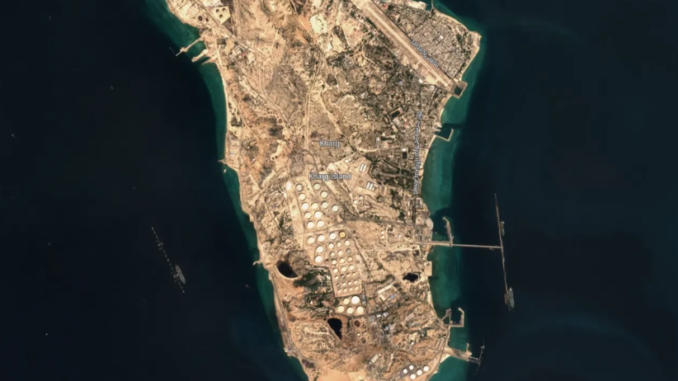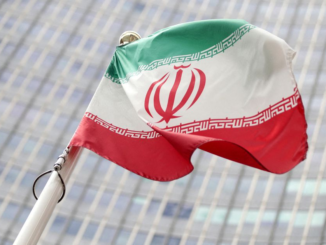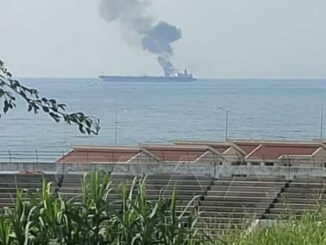
When Iran launched a barrage of some 180 ballistic missiles at Israel a week ago — causing little damage or casualties — Israeli Prime Minister Benjamin Netanyahu warned that Tehran had made a “big mistake” and would “pay for it.”
Iran’s first large strike on Israel in April — featuring 300 drones and missiles — drew a limited counterattack. But Israeli officials have this time vowed a “significant retaliation,” fueling speculation that Israel could target Iran’s oil, military and nuclear infrastructure.
Netanyahu is under intense pressure from some senior Israeli officials, including former Prime Minister Yair Lapid, to strike Iran’s “most painful target,” while US President Joe Biden has called for calm, saying October 4 he would think about alternatives to striking Iranian oil fields if he were in Israel’s shoes.
Oil prices leap due to geopolitical risk
Since Iran’s most recent strikes, oil prices have spiked sharply. Brent crude rose 17% in a week to $81.16 (€74), although prices have eased again after the Iran-backed Hezbollah militia signaled a readiness for a cease-fire in its conflict with Israel across the Lebanese border.
If Israel were to damage Iran’s most critical oil assets, it could remove nearly 2 million barrels per day from the global oil market, leading some traders to speculate about a return to three-digit oil prices. The oil price last crossed the $100 mark shortly after Russia launched its full-scale invasion of Ukraine in February 2022.
Some fear oil prices could reach $200
“If you [Israel] take out oil Installations in Iran, easily you [oil prices] could go to $200 plus,” Bjarne Schieldrop, chief commodities analyst at Swedish bank SEB, told US broadcaster CNBC last week.
The exports of Iran, one of the world’s largest oil producers, are subject to harsh international sanctions as part of a protracted dispute with the West over Tehran’s nuclear ambitions. Despite this, Iranian oil exports hit a five-year high of 1.7 million barrels in May, according to energy analytics firm Vortexa. About 90% of its oil is delivered to China, much of it illicitly, through Tehran’s so-called ghost fleet of nearly 400 tankers that disguise their movements to breach the sanctions.
“The Iranian economy is hugely dependent on the revenues it generates from its oil exports,” Carole Nakhle, CEO of the London-based consultancy Crystol Energy, told DW. “Any disruption to those revenues will have severe impacts on the economy.”
What oil facilities could Israel target?
If Israel did target Iran’s oil infrastructure, an attack on Kharg Island would likely be the most crippling. The island is home to Iran’s main oil export terminal, which plays a critical role in facilitating the country’s official and clandestine oil trade.
Located in the Persian Gulf, about 40 kilometers (25 miles) off the Iranian coast, Kharg Island has vast storage facilities, enabling it to handle nine-tenths of the Islamic Republic’s oil exports. Most of Iran’s tankers load from the Kharg facility, so any disruption could severely affect the country’s ability to meet its export commitments.
Other possible targets include the Bandar Abbas oil refinery, located in the southern Gulf port city of the same name, which plays a key role in crude exports but also hosts military facilities. The Abadan refinery, in the southwest, with a capacity of 400,000 barrels per day, is vital for Iran’s domestic consumption.
An Israeli attack on refineries might not drive oil prices as high as an attack on the Kharg export terminal, but it would cause more misery for ordinary Iranians, already struggling with high inflation, a weak currency and high unemployment as a result of years of Western sanctions.
The South Pars gas field, located in the Gulf, is the world’s largest natural gas field, shared with Qatar. South Pars contains around 8% of the world’s natural gas reserves and is a major revenue source for Iran. The Bushehr oil terminals, meanwhile, are located close to a nuclear plant of the same name, so Israel could achieve a double whammy if it decided to target that area.

Excess capacity keeps oil prices in check, for now
The rise in oil prices has been somewhat tamed by “plentiful supplies” in global markets, said Nakhle, noting how OPEC+ is sitting on almost 5 million barrels a day of spare capacity. At the same time demand is not growing fast, she said, as China’s appetite for oil has been hurt by a sluggish economic recovery from the COVID-19 pandemic.
But those supplies could quickly dry up if spare capacity dwindles in the event of a wider regional conflict. Tehran has repeatedly threatened to blockade the Strait of Hormuz, a critical choke point for around 20% of the world’s oil supply. This would add to the woes facing maritime trade after Iran-backed Houthis attacked shipping in the Red Sea over the past 11 months. Iran’s foreign minister, Abbas Araghchi, this week threatened “an even stronger response” to any attack by Israel on its infrastructure.
Some speculators have even compared the worsening Middle East tensions with the 1970s oil crisis, triggered by a war between Israel and several Arab states that saw oil prices quadruple, which Nakhle thinks is unsound.
“Oil is not as important in energy consumption as it used to be in the ’70s. Back then, it used to meet 50% of our energy needs worldwide,” she said. “The Middle East is no longer the only producer,” she added, noting how increased production by the United States, Brazil, Canada and Guyana has helped diversify supplies.
We give you energy news and help invest in energy projects too, click here to learn more
Crude Oil, LNG, Jet Fuel price quote
ENB Top News
ENB
Energy Dashboard
ENB Podcast
ENB Substack




Be the first to comment